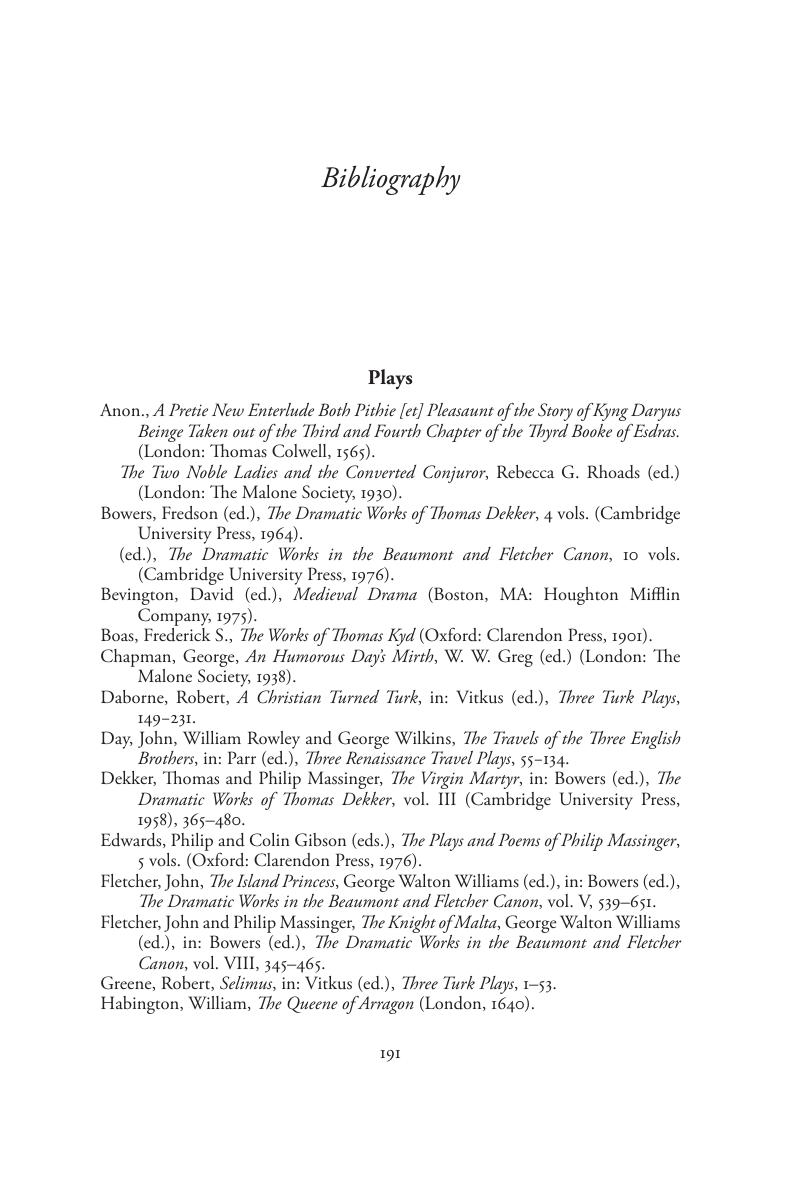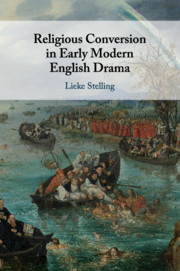Book contents
- Religious Conversion in Early Modern English Drama
- Religious Conversion in Early Modern English Drama
- Copyright page
- Dedication
- Contents
- Acknowledgements
- Note on Texts and Dates
- Introduction
- Part I Spiritual Conversion
- Part II Interfaith Conversion
- Conclusion
- Appendix: List of Spiritual and Interfaith Conversion Plays
- Notes
- Bibliography
- Index
- References
Bibliography
Published online by Cambridge University Press: 14 December 2018
- Religious Conversion in Early Modern English Drama
- Religious Conversion in Early Modern English Drama
- Copyright page
- Dedication
- Contents
- Acknowledgements
- Note on Texts and Dates
- Introduction
- Part I Spiritual Conversion
- Part II Interfaith Conversion
- Conclusion
- Appendix: List of Spiritual and Interfaith Conversion Plays
- Notes
- Bibliography
- Index
- References
Summary

- Type
- Chapter
- Information
- Religious Conversion in Early Modern English Drama , pp. 191 - 210Publisher: Cambridge University PressPrint publication year: 2019



